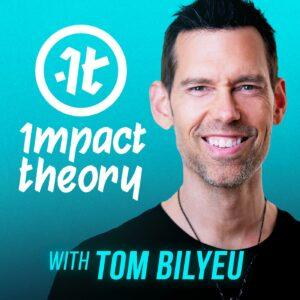
In this episode of the Huberman Lab podcast, Dr. Nolan Williams, a leading researcher in the field of depression and mood disorders, discusses the use of transcranial magnetic stimulation (TMS) and psychedelic treatments for brain rewiring. Dr. Williams shares insights into the history, safety profiles, and current status of various drugs, such as ketamine, MDMA, and psilocybin, for clinical use. He also explores the connection between the brain and heart in treating depression and mood disorders.
Dr. Nolan Williams explores the use of transcranial magnetic stimulation (TMS) in combination with psychedelic treatments for depression and mood disorders. He discusses the history, safety profiles, and current status of various drugs, including ketamine, MDMA, and psilocybin, for clinical use. Ongoing studies in his laboratory are recruiting subjects for clinical trials to advance the treatment of depression and mood disorders.
Dr. Williams’ laboratory focuses on combining psychedelic treatments with brain-machine interfaces and neural plasticity protocols to change the brain in specific ways. Depression, being a complex condition with a wide range of symptoms, requires innovative approaches. The laboratory’s research also explores the connection between the brain and heart, aiming to develop treatments for depression and reduce the risk of heart attacks.
Understanding the role of specific brain regions is crucial in treating depression. The left dorsal lateral prefrontal cortex is connected to reducing depressive symptoms, while the right dorsal lateral prefrontal cortex is connected to causing mania. Hemispheric balancing of mood occurs between these two regions. Stimulation of the left dorsal lateral prefrontal cortex has been shown to slow heart rate and alleviate some symptoms of depression.
Emerging treatments for depression, such as dissociative anesthetics like ketamine and highly emotional drugs like psilocybin and MDMA, challenge the traditional view of depression as solely caused by a chemical imbalance in the brain. These treatments focus on recalibrating circuits in the brain rather than simply boosting serotonin levels. This paradigm shift opens up new possibilities for the treatment of depression and mood disorders.
Sleep deprivation can have an antidepressant effect, but it requires a circadian reset to address depression effectively. Dr. Williams emphasizes the importance of discussing internal superstitions to reduce stigma and promote understanding. He also highlights the need to recognize alcohol as a drug with significant personal and societal risks. These topics shed light on various aspects related to mental health and well-being.
Dr. Nolan Williams’ research and insights into the combination of TMS and psychedelic treatments offer new possibilities for the treatment of depression and mood disorders. By focusing on brain rewiring and neural plasticity, his laboratory aims to revolutionize the approach to mental health. The exploration of specific brain regions and emerging treatments challenges traditional views and opens up new avenues for understanding and treating depression. It is through these advancements that individuals can find hope and empowerment in their journey towards mental well-being.